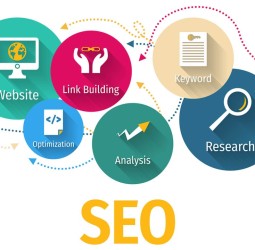Introduction
Search Engine Optimization (SEO) is one of the most effective ways for small businesses to improve their online visibility and attract more customers. By optimizing your website and content for search engines like Google, you can drive organic traffic and compete with larger businesses without breaking the bank.
This guide outlines beginner-friendly SEO strategies tailored for small businesses to help you get started.
Step 1: Understand the Basics of SEO
Web optimization includes further developing your site's positioning on web index results pages (SERPs). It consists of three main components:
- On-Page SEO: Optimizing individual pages for specific keywords.
- Off-Page Website design enhancement: Building backlinks and advancing your webpage remotely.
- Specialized Website design enhancement: Guaranteeing your webpage is quick, dynamic, and simple for web indexes to slither.
- Pro Tip: SEO is a long-term investment, so be patient as results may take weeks or months.
Step 2: Conduct Keyword Research
Keywords are the foundation of SEO. These are the terms individuals look for in Google to track down your items or administrations.
How to Find Keywords:
- Use instruments like Google Catchphrase Organizer, Ubersuggest, or SEMrush.
- Center around lengthy tail watchwords (e.g., "reasonable wedding photography in Chicago") that are less serious.
- Look at what your competitors are ranking for.
- Actionable Step: Create a list of 10-20 relevant keywords to target in your content.
Step 3: Optimize Your Website Content
Ensure your content is aligned with the keywords you’ve identified. Key areas to focus on include:
- Headings (H1, H2, and so on): Use headings to normally structure your substance and consolidate watchwords.
- URL Structure: Keep URLs short and descriptive, including keywords where appropriate.
- Picture Streamlining: Utilize distinct document names and alt text for pictures.
- Master Tip: Compose for people first and enhance for web crawlers second. High-quality, engaging content will naturally perform better.
Step 4: Improve Your Website’s Technical SEO
Search engines prioritize user-friendly websites. Key technical areas to address:
- Versatile Plan: Guarantee your site is responsive on all gadgets.
- Page Speed: Use devices like Google PageSpeed Bits of knowledge to distinguish and fix execution issues.
- Secure Your Site: Use HTTPS to improve security and SEO rankings.
- Fix Broken Connections: Routinely check for and fix 404 blunders.
- Noteworthy Stage: Use devices like Shouting Frog or Sitebulb to play out a specialized Search engine optimization review.
Step 5: Build High-Quality Backlinks
Backlinks are links from other websites to yours. They sign to web crawlers that your webpage is reliable and legitimate.
How to Build Backlinks:
- Reach out to industry blogs or local websites for guest posting opportunities.
- Share your substance via online entertainment and urge others to connection to it.
- List your business in web-based catalogs like Cry or Google My Business.
- Pro Tip: Focus on quality over quantity. A couple of significant position joins are superior to some inferior quality ones.
Step 6: Create a Google Business Profile
For local businesses, having a Google Business Profile is essential for improving local SEO. This assists you with showing up in Google Guides and neighborhood query items.
Steps to Set It Up:
- Visit Google Business Profile and create an account.
- Enter accurate information about your business, including name, address, phone number, and website.
- Add high-quality photos and encourage customer reviews.
- Pro Tip: Consistency is key. Guarantee your business subtleties are indistinguishable across all web-based stages.
Step 7: Monitor and Analyze Your Results
Keep tabs on your development to see what's working and where you can get to the next level.
Key Metrics to Monitor:
- Organic traffic (Google Analytics)
- Keyword rankings (Ahrefs or SEMrush)
- Backlinks (Moz or Ahrefs)
- Bounce rate and session duration (Google Analytics)
- Actionable Step: Set up Google Search Console to monitor your website’s performance and fix indexing issues.
Conclusion
Search engine optimization is an integral asset for private ventures to increment perceivability, draw in additional clients, and develop naturally. By following these beginner-friendly strategies, you can build a strong foundation for your online presence and compete effectively in your industry.
Next Steps: Start implementing these tactics today, and continuously refine your strategy as you learn more about your audience and industry.


 PTFbuzz
PTFbuzz









